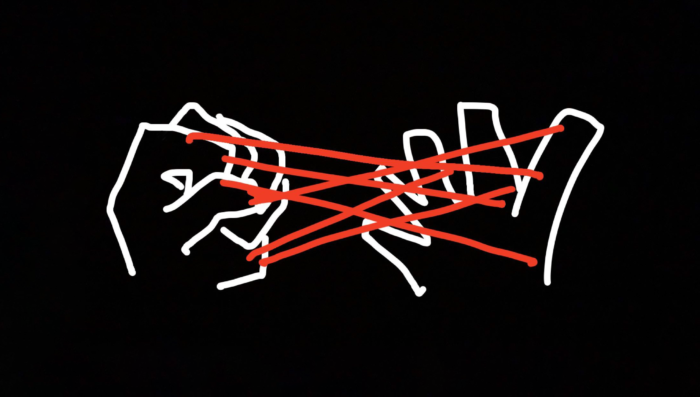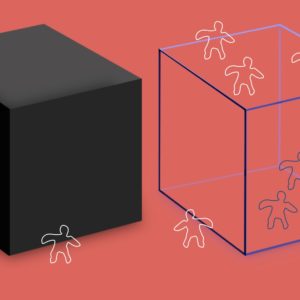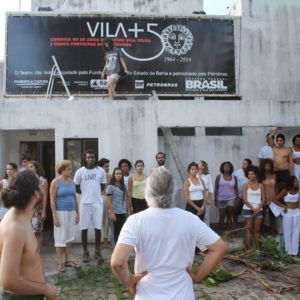
Special issue of Diseña #21
Guest editors:
- Frederick van Amstel | Federal University of Technology – Paraná
- Lesley-Ann Noel | North Carolina State University
- Rodrigo Gonzatto | Pontifical Catholic University of Paraná
SUBMISSION DEADLINE:
March 30 April 6, 2022 (extended deadline)
Expected publication date: August 2022
Design research and practice are responsible for articulating and materializing structural oppression (Fanon, 2007; Freire, 1996; hooks, 2014) into everyday objects and experiences. There is a growing strand of research that denounces the complicity of design in racism (Souza, 2020), heteronormativity (Santos, 2018), ableism (Liao & Huebner, 2021), colonialism (Angelon & van Amstel, 2021), anthropocentrism (Forlano, 2016), and other forms of oppression.
These works open up the possibility of occupying, reclaiming, repairing, and restoring what oppressors have done with design in the past. Pluriversal design (Noel, 2020), feminist designs (Bardzell, 2010), design justice (Costanza-Chock, 2018), multispecies design (Westerlaken, 2020), designing for liberation (Jack & Tuli, 2021), and designs of the South (Gutiérrez Borrero, 2015) are some approaches that shift design research from denouncing to announcing new realities. This shift is a dialectical result of social movements reaching design practice while, at the same time, design practice reaching social movements.
This Special issue welcomes research that contributes to sharpening the understanding of oppression in design and increasing the solidarity between the different struggles for liberation that cut across design. Contributions can include theoretical or methodological essays, ethnographic accounts, case studies, or visual papers that interrogate and challenge oppression in design.
Theme breakdown
- Gendered, feminist, and intersectional designs
- Racialized and anti-racist, Black, abolitionist, afro-centric designs
- Ableist and anti-ableist, posthumanist, multispecies designs
- LGBTQIA+ designs
- Marxist designs that account for labor, precarity, and revolution
- Indigenous, decolonial, postcolonial, countercolonial, declassificatory, unsettling, and pluriversal perspectives over design
- Handiness oppression, craftwork, material culture, and alternative production circuits
- Critical pedagogy in design, designing for liberation, emancipatory design, design for social justice
- Designs of the oppressed, designs of the South, South to South dialogues, subaltern designs, marginalized designs, user design, other designs
- Counter-projects, alterdesigns, antidesign, undesigning, and infradesign
Please submit your manuscript for peer-review in www.revistadisena.uc.cl by March 30, 2022.
Only contributions written in English will be accepted. Please read the instructions for authors.
REFERENCES
Angelon, R., & van Amstel, F. (2021). Monster Aesthetics as an Expression of Decolonizing the Design Body. Art, Design & Communication in Higher Education, 20(1), 83–102. https://doi.org/10.1386/adch_00031_1
Bardzell, S. (2010). Feminist HCI: Taking Stock and Outlining an Agenda for Design. Proceedings of the SIGCHI Conference on Human Factors in Computing Systems, 1301–1310. https://doi.org/10.1145/1753326.1753521
Costanza-Chock, S. (2018). Design Justice: Towards an Intersectional Feminist Framework for Design Theory and Practice. Proceedings of the Design Research Society 2018. https://papers.ssrn.com/sol3/papers.cfm?abstract_id=3189696
Fanon, F. (2007). The Wretched of the Earth. Grove.
Forlano, L. (2016). Decentering the Human in the Design of Collaborative Cities. Design Issues, 32(3), 42–54. https://doi.org/10.1162/DESI_a_00398
Freire, P. (1996). Pedagogy of the Oppressed (Rev. ed.). Continuum.
Gutiérrez Borrero, A. (2015). Resurgimientos: Sures como diseños y diseños otros. Nómadas, 43, 113–129.
hooks, bell. (2014). Teaching to Transgress. Routledge.
Jack, M., & Tuli, A. (2021). Designing for Liberation: Our Lives, Mobility, and Technology. Interactions, 28(2), 34–41. https://doi.org/10.1145/3448020
Liao, S., & Huebner, B. (2021). Oppressive Things*. Philosophy and Phenomenological Research, 103(1), 92–113. https://doi.org/10.1111/phpr.12701
Noel, L.-A. (2020). Envisioning a Pluriversal Design Education. Proceedings of PIVOT 2020: Designing a World of Many Centers, DRS Pluriversal Design SIG Conference, 69–77. https://doi.org/10.21606/pluriversal.2020.021
Santos, M. R. dos. (2018). Gênero e cultura material: A dimensão política dos artefatos cotidianos. Revista Estudos Feministas, 26.

